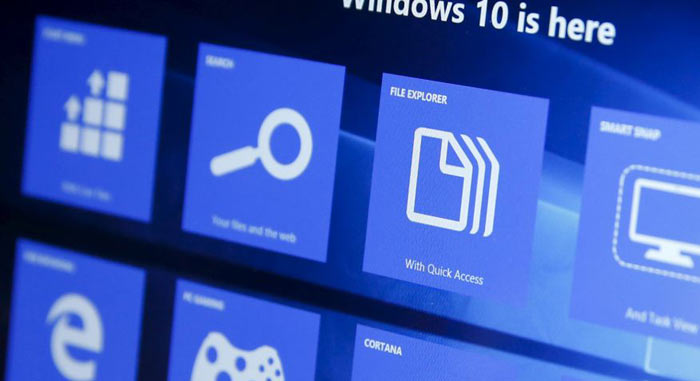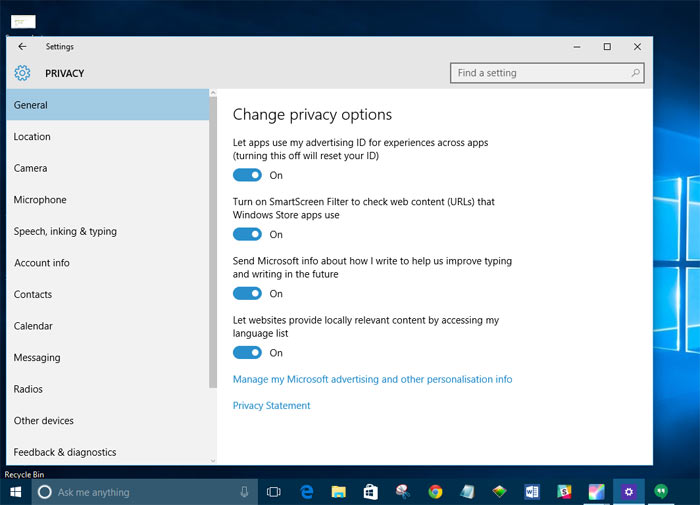Microsoft's Windows and Devices boss Terry Myerson has written a blog post about Privacy and Windows 10. He seeks to clear up what types of data that Windows 10 might collect and highlight how the user is in control. The Windows boss gives examples of how passing some forms of information to Microsoft developers is beneficial for all Windows users. Furthermore Myerson says that any data that is collected is encrypted in transit and stored in secure facilities at Microsoft.

Two privacy principles are said to be behind Windows 10:
- Windows 10 collects information so the product will work better for you.
- You are in control with the ability to determine what information is collected.
For the sake of the first principle, above, Microsoft collects safety and reliability data. It says that this data includes "an anonymous device ID, device type, and application crash data which Microsoft and our developer partners use to continuously improve application reliability". Myerson stresses that steps are taken to avoid collecting any content, files and information that might directly identify the user.
An example of the above reliability data being used by Microsoft is given in which a particular graphics driver was crashing on some Windows 10 PCs and also causing reboots. Microsoft says that it saw this trend and worked with the vendor to provide an update/fix within 24 hours. Later the reliability data was used to confirm the effectiveness of the fix. It is noted that Enterprise customers will be able to opt out of this kind of data collection (sometimes referred to as telemetry data) following an OS update later this year.
A flagship part of Windows 10 was the inclusion of the software assistant called Cortana. To work at its best this system uses a few morsels of information to help anticipate things you might want to know about and therefore be a better, more useful assistant on the whole. Data such as sports team allegiance, locations and text input history are used by such assistants on mobile and now on PCs. Myerson again has a point to stress - that the availability of this information to Microsoft is up to the end user and you can update your settings at any time.

Lastly the Windows Blog turns to the subject of collecting advertising data. But rather than talk about Microsoft's own policies Myerson points at 'others' to say "Unlike some other platforms, no matter what privacy options you choose, neither Windows 10 nor any other Microsoft software scans the content of your email or other communications, or your files, in order to deliver targeted advertising to you". It is quite trivial to turn off the Windows advertising ID which may be used to keep track of which ads you've seen across apps.
People looking for more in-depth explanations of the One Microsoft Privacy Policy are directed towards the full official document online. Microsoft has posted new guidance content regarding telemetry aimed at IT Pros, and about all aspects of data collection via online services aimed at consumers.













